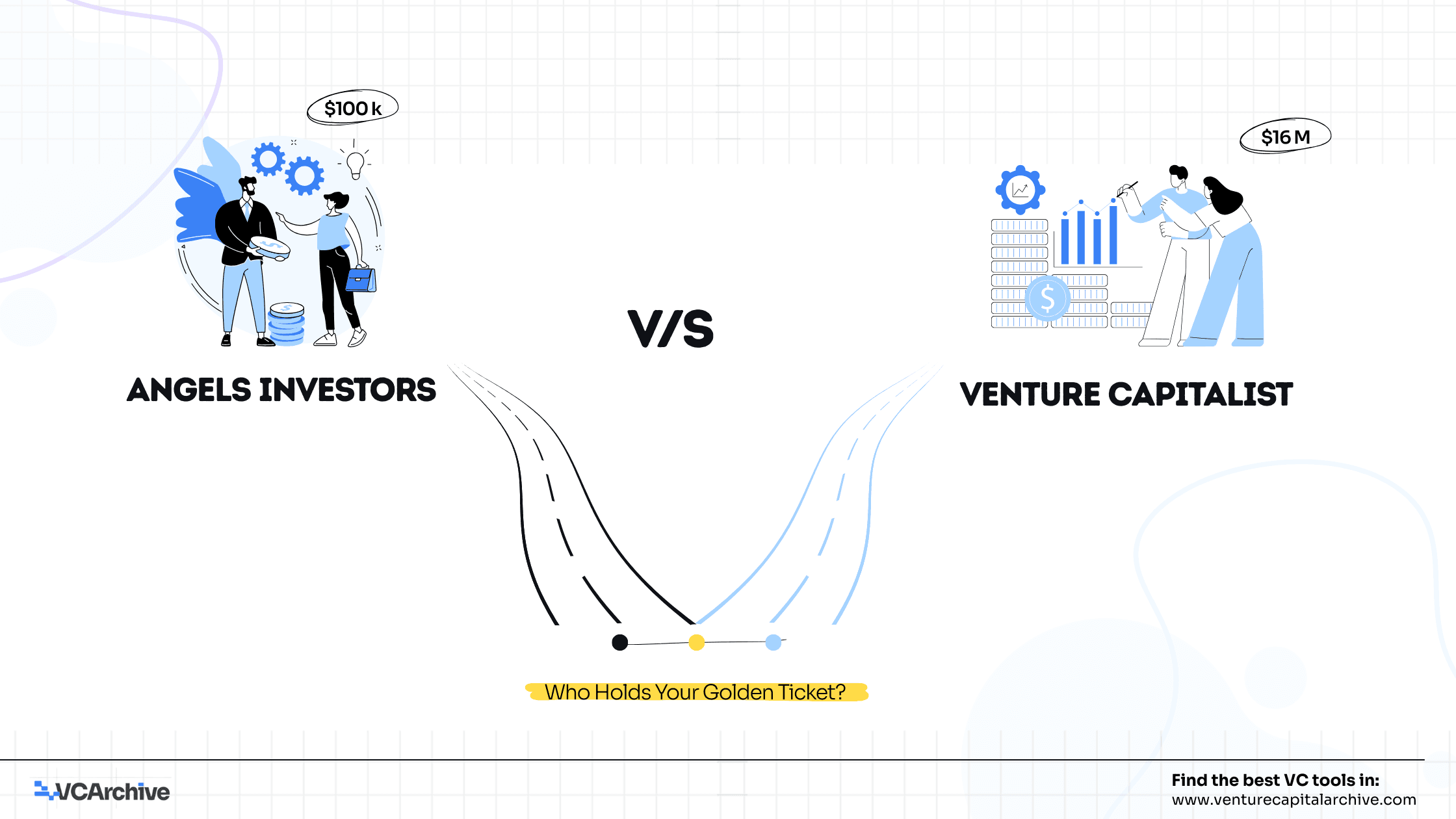
Angel Investors vs. Venture Capitalists in Today's Funding Landscape

The Guardian Angels of Early-Stage Ventures
Angel investors—often characterized as wealthy individuals with a passion for innovation—provide the crucial runway that helps startups get off the ground. These investors typically infuse between $25,000 and $100,000 of their personal capital, though the 2024 Angel Funders Report shows average investments reaching $243,000 per deal.
What makes angels unique?
- They invest based on passion and mission, seeking what investor Terri Maxwell calls "meaningful money"
- They take early bets on concepts other investors might consider too risky
- They often provide less intrusive oversight than institutional investors
- They bring valuable industry connections and expertise
- They accept failure without requiring repayment
The trade-off? Angels typically expect significant equity and may drive founders toward aggressive growth strategies to maximize returns.
The Venture Capital Ecosystem: Institutional Firepower
Venture capitalists represent a different breed of investor altogether. These professional investment firms manage pooled funds from various sources, including high-net-worth individuals, pension funds, and corporations. According to the AlleyWatch 2025 U.S. Venture Capital Funding Report, their investments scale dramatically:
- Early-stage investments: $4.4 million average
- Series A investments: $16.6 million average
- Series B investments: $37.3 million average
- Late-stage investments: Up to $182.3 million
VCs bring more than just capital—they provide strategic guidance, recruitment support, and extensive networks that can accelerate growth. However, they also demand significant control, conduct rigorous due diligence (often spending over $50,000 researching potential investments), and maintain strict expectations for rapid scaling and exits.
Making the Right Choice for Your Venture
The decision between angel funding and venture capital ultimately depends on your startup's stage, capital needs, and comfort with external control.
Consider angel investors if:
- You're developing an early-stage concept or prototype
- You value maintaining greater operational control
- You can succeed with a smaller capital infusion
- Your business model doesn't require rapid scaling
Consider venture capitalists if:
- You need substantial capital to scale quickly
- You value strategic guidance and industry connections
- Your business model requires significant infrastructure
- You have a clear path to a lucrative exit within 5-10 years
The Art of the Pitch: Speaking Different Languages
Pitching to angels and VCs requires fundamentally different approaches. With angels, focus on vision, passion, and storytelling. With VCs, emphasize data-driven results, market analysis, and clear exit strategies.
The Future of Startup Funding
As the investment landscape evolves, the lines between angel investors and venture capitalists continue to blur. Angel syndicates now regularly pool resources to make larger investments, while some VCs have established specialized funds for earlier-stage investments.
What remains constant is the need for founders to align with investors who share their vision, timeline, and expectations for growth. The right capital partner doesn't just provide funding—they become an integral part of your journey from concept to market dominance.
Whether you're seeking your first seed round or preparing for Series B, understanding these critical differences will help you navigate the capital maze with confidence and secure the financial partnerships your venture needs to thrive.